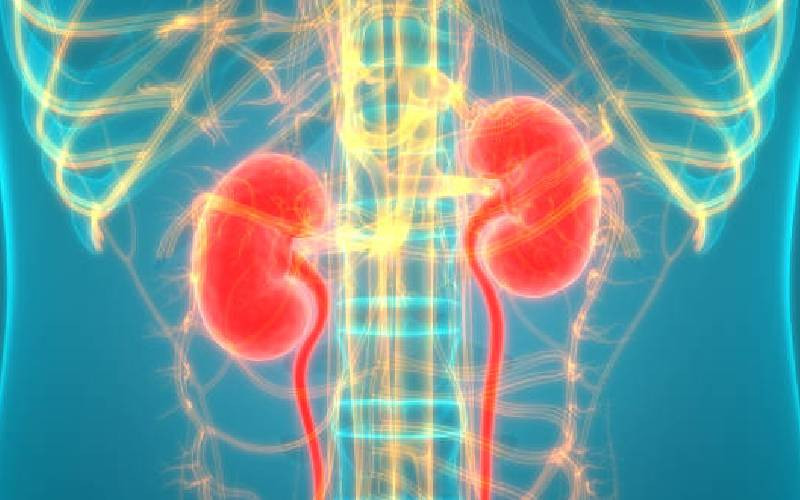
Since 2006, the world has marked World Kidney Day on the second Thursday of March every year.
Such days of commemoration are intended to provide an opportunity to educate the public on potential health challenges.
So, to understand the significance of the kidney consider this: it's one thing when you have a condition that immediately produce symptoms as this would lead you to seek medical attention almost immediately.
 The Standard Group Plc is a multi-media organization with investments in media
platforms spanning newspaper print
operations, television, radio broadcasting, digital and online services. The
Standard Group is recognized as a
leading multi-media house in Kenya with a key influence in matters of national
and international interest.
The Standard Group Plc is a multi-media organization with investments in media
platforms spanning newspaper print
operations, television, radio broadcasting, digital and online services. The
Standard Group is recognized as a
leading multi-media house in Kenya with a key influence in matters of national
and international interest.











